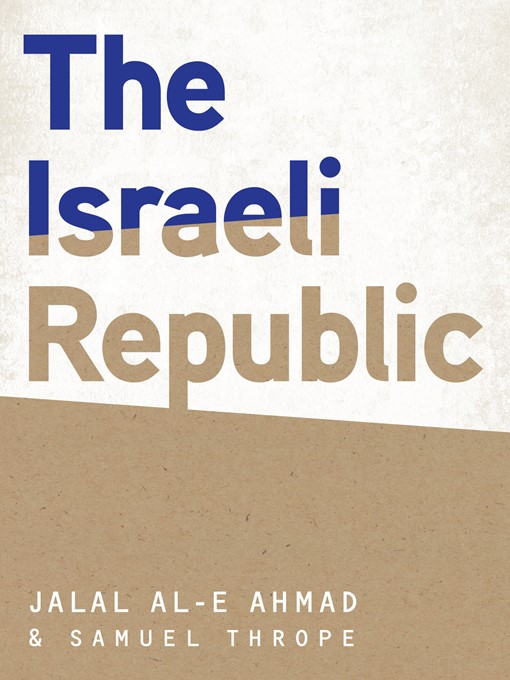Written by a preeminent Iranian writer who helped lay the popular groundwork for the Iranian Revolution, The Israeli Republic should be required reading for Israelis, Iranians, and anyone interested in the ongoing conflict between them. In 1964, a young clerical seminary student named Ali Khamenei—who would become, ten years after the 1979 Islamic Revolution, Supreme Leader of Iran—placed an angry phone call to Jalal Al-e Ahmad. Al-e Ahmad, Iran's leading writer and one of the foremost critics of Shah Mohammad Reza Pahlavi's rule, had become known for a work he called Gharbzadegi, a scathing attack on the regime. Best translated into English as "Occidentosis" (the state of being afflicted by the disease of the West), this profoundly influential essay, which became a watchword in Iranian politics, called on Iranians to abandon Westernization and return to their cultural roots in Islam.
Ahmad's most recent article, however, had rattled the seminarians—chief among them Ayatollah Ruhollah Khomeini, the revolutionary cleric and founder of the Islamic Republic. "Journey to the Land of Israel" was an account of—and justification for—Al-e Ahmad's two-week-long trip to Israel in February of 1963. In the thriving Jewish State, Jalal Al-e Ahmad saw a model for a possible future Iran. Based on his controversial travelogue and translated into English for the first time, The Israeli Republic is a record of Al-e Ahmad's idealism, insight, and ultimate disillusionment towards Israel. Vibrantly modern in its sensibility and fearlessly polemical, this book will change the way you think about the Middle East.

